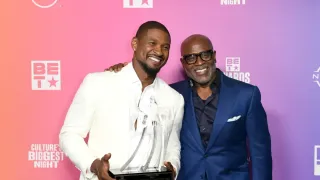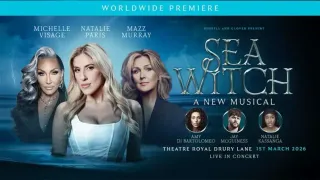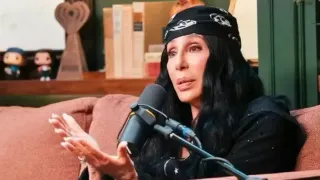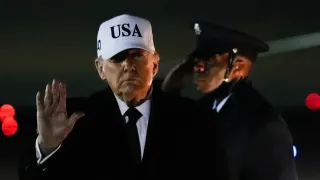November 26, 2024
Close 'Encounters': Luca Guadagnino and Daniel Craig Talk about Sex, Love, and 'Queer'
Kilian Melloy READ TIME: 8 MIN.
When it comes to the chemistry he and Starkey shared, Craig reflected on the "generosity" and the "life experiences" that cast mates can draw on.
Leaping in, Gudadgnino praised performers he's worked with on previous productions who, he said, didn't like each other – but you'd never know it from their onscreen electricity.
Would he spill a little tea about that?
"Not even in my 90-years-old memoir," Guadagnino vowed. "It's going to stay a secret." He illustrated his philosophy with an anecdote about seeing an exhibition about Stanley Kubrick and being "dispirited" to find that the prop for the "star child" from "2001: A Space Odyssey" was nothing more cosmic than a piece of rubber. "I think the mystique of the process should stay [unspoiled]," the director asserted.
"It's show business," Craig agreed, "and we have to keep it like that, because if you give all the secrets away, then it has no magic anymore."
And speaking of magic... the film incorporates another facet of Burrough's real life. A longtime heroin user, the writer was interested in other hallucinogenic experiences, including the South American concoction ayahuasca, which is made from the yage plant. Burroughs traveled to the Amazon rainforest in a quest for yage, and in adapting "Queer" to the screen, Kurtizkes added a similar quest... and a psychedelic trip, something that Guadagnino noted was not part of his own never-produced screenplay.
Eventually, the conversation came around to the film's soundtrack – specifically, its inclusion of the Nirvana song "Come As You Are."
"Well, the title says it all – in every sense," the director said to startled laughter. "Guys, I'm so sorry, I'm so embarrassed," the director hastened to apologize – but not before Craig jumped in with, "I'm just glad someone else made the joke, not me."
Surprisingly, the director indicated that the LGBTQ+ content of his films and TV projects wasn't necessarily a matter of consciously "explor[ing] themes of identity and queer identity in my work.
"I can only speak for what I am attracted to, and what I want to tell the story of," Guadagnino reflected. "If we can take the world of 'Queer' in the sense of [it being] something that doesn't need to be included, so doesn't feel to be excluded, then that's the 'Why.' I love these characters, and I love this world, and those are specific people and places that I want to see onscreen."
Guadagnino went on to say that while he may be an openly gay filmmaker, "I don't know if the duty of a movie is that of changing the ideas of representation in an industry."
Even so, he lavished praise on Craig "and the rest of the cast, who embraced the movie, [such] that, as Marcel Proust used to say, there is nothing that cannot be said. It depends on how you say it.
"I think that as much as we can consider ourselves free to be expansive in representation and not narrow in that, then there is hope," Guadagnino added.
Craig, for his part, felt he could add nothing to those words: "I couldn't be that eloquent," the actor said.
"Queer" opens in theaters on Nov. 27.






